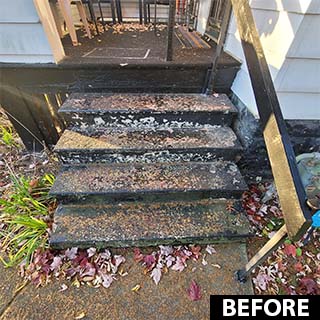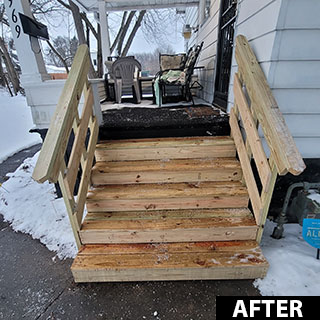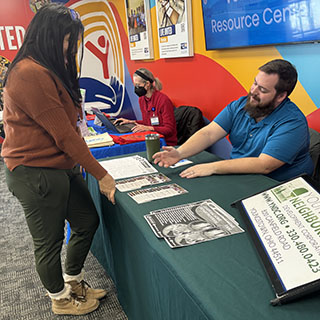Mahoning County continues to spend its state and federal funds to reduce lead hazards, but funding reductions in Washington and Columbus could make it more challenging in the near future. Mahoning County commissioners regularly have approved items placed on the agenda by Phil Puryear, head of the county’s Department of Lead Hazard Control.
In just the past month, the board has approved 16 projects across the county, totaling roughly $430,000, for remediation of lead-based hazards. The work is funded through a U.S. Department of Housing and Urban Development’s Lead Hazard Reduction Grant and Healthy Homes supplemental funding.
“The incidence of lead poisoning is high here,” Puryear said. “These are competitive grants based on need and the ability to spend the money, and fortunately we’ve been granted a lot of money to remediate these lead-based paint hazards.” The county received the four-year, $5.7 million award in 2022, and it will expire at the end of 2026. The grant required at least $500,000 in local matching funds and Puryear said the application ultimately included nearly $700,000, including $500,000 from the City of Youngstown in the form of Community Development Block Grant dollars, and $160,000 from the county. Puryear said landlords who benefit from the program also pay into it, which counts as matching funds.
The overall funding for lead hazard remediation through the grant and matching dollars will be closer to $7 million by the time it is completed next year. He said that through the first quarter of 2025, the county has used about $486,000 of the matching funds and drawn about $2.46 million against the $5.7 million award. Puryear said the program supports low-income families with children. Children are more susceptible to the dangers of lead and can be exposed through any number of channels. Puryear said wet basements can lead to flaking of lead paint, and glazing on windows in houses built in the 1950s and 1960s often puts lead-contaminated dust into the air as the windows open and close. He said $5 million of the grant funding is specifically for lead-based paint remediation, which limits the scope of the project to only items that are painted or varnished with lead-based products. He said the rest of the funding is through HUD’s Healthy Homes program, which gives them more room to address other issues.
“We can address issues like water infiltration, carbon monoxide detectors, electrical hazards, and other things that will make the house less safe, as well as things that will increase the risk of lead exposure,” he said.
The program also allows for collaboration. For example, the county sometimes helps the City of Youngstown with projects such as mold removal. One item on the April 24 agenda included a contract with Galloway Construction & Restoration Inc. for mold remediation in the amount of $12,740. “We don’t typically deal with mold through this project,” Puryear said. “But the City of Youngstown gives us a lot of matching funds for our lead grant, and from time to time when they have issues that arise that they have no method of dealing with, they will ask us to help facilitate some projects for them,” he said.
Likewise, the county will at times petition the city, on a case-by-case basis, to use the grant to fix a roof or demolish a garage. All of those projects are completed through a CDBG grant agreement, whereby the county pays the contractor and the city reimburses the county. “All of our contractors are licensed and bonded in lead abatement and certified through the EPA and the city doesn’t have that capability at this point,” he said.
Ian Beniston, executive director of the Youngstown Neighborhood Development Corporation, said his organization’s partnership with the county and city — and the funding that supports it — has been critical to its mission for about the past 15 years.
To read the full story from the Vindicator, click here.
 ,
, 
 ,
, 


 ,
, 
